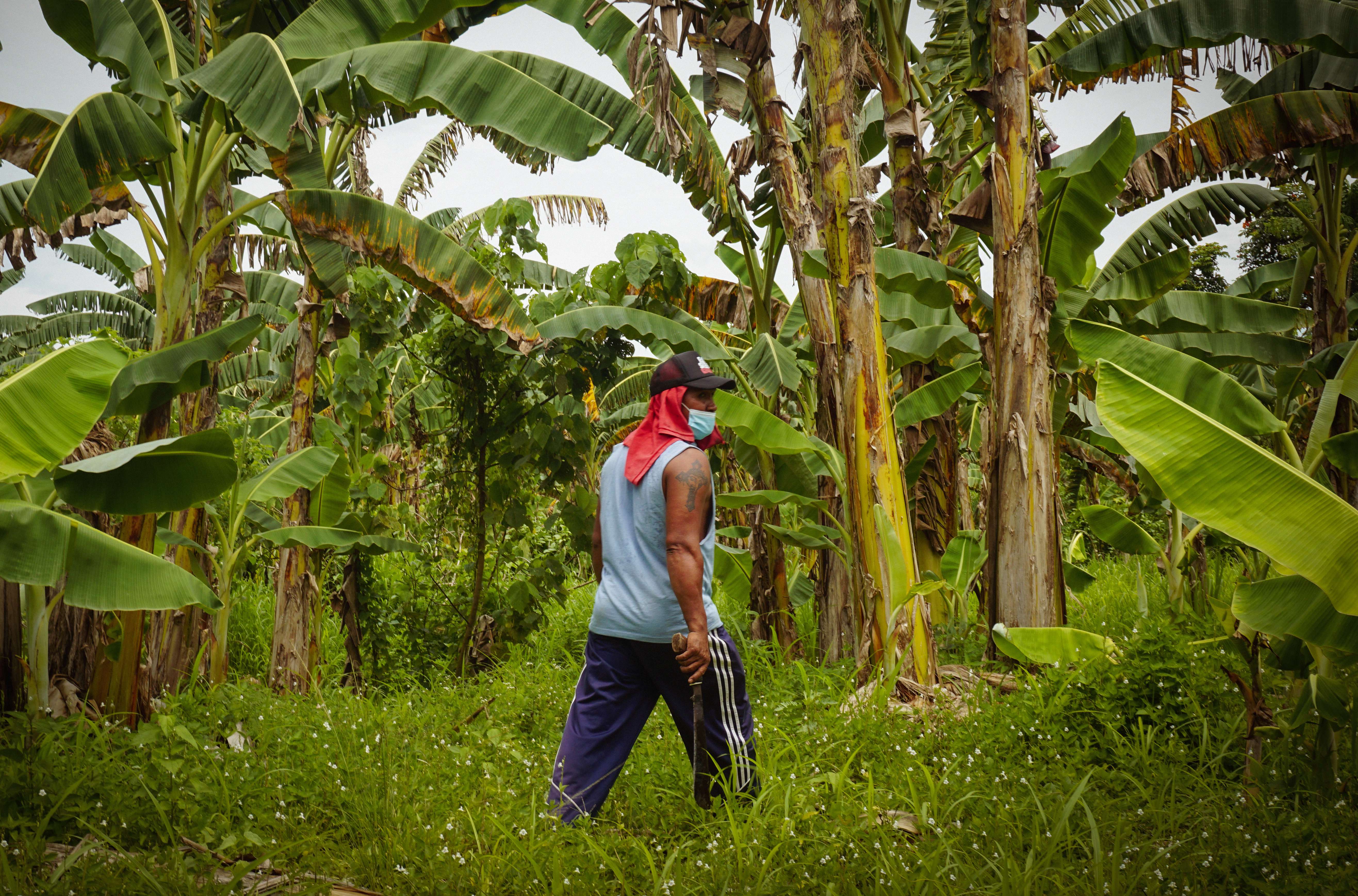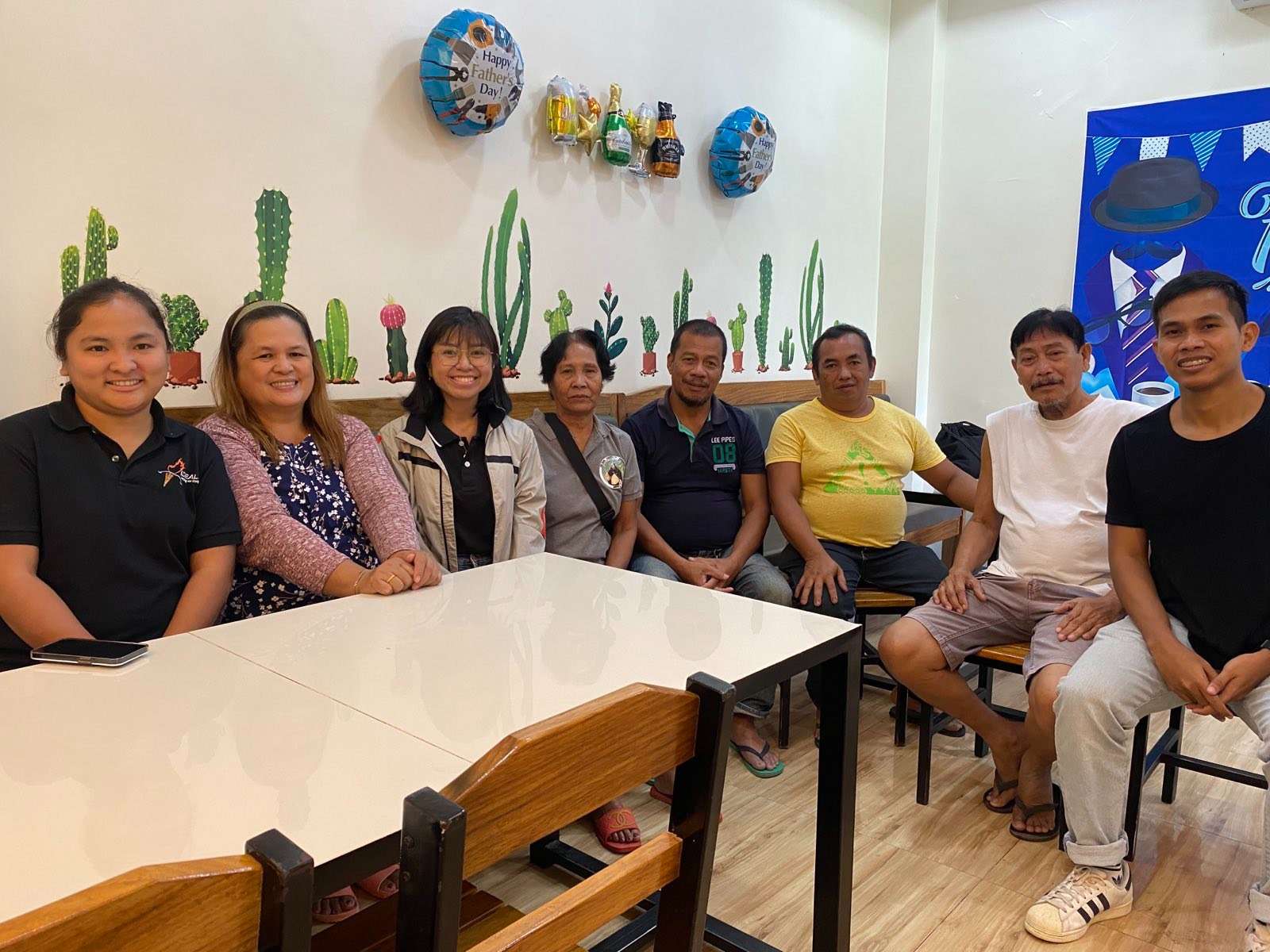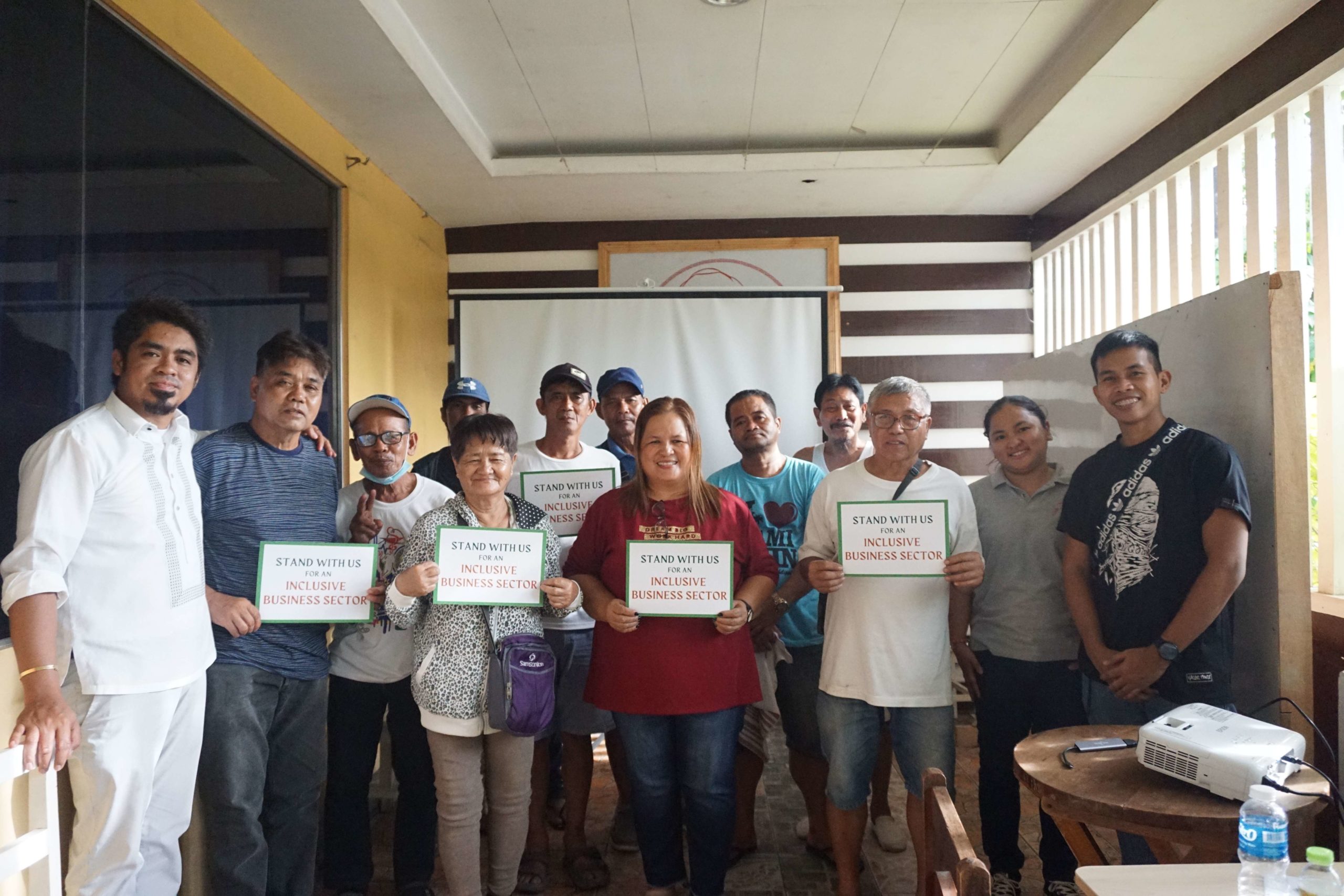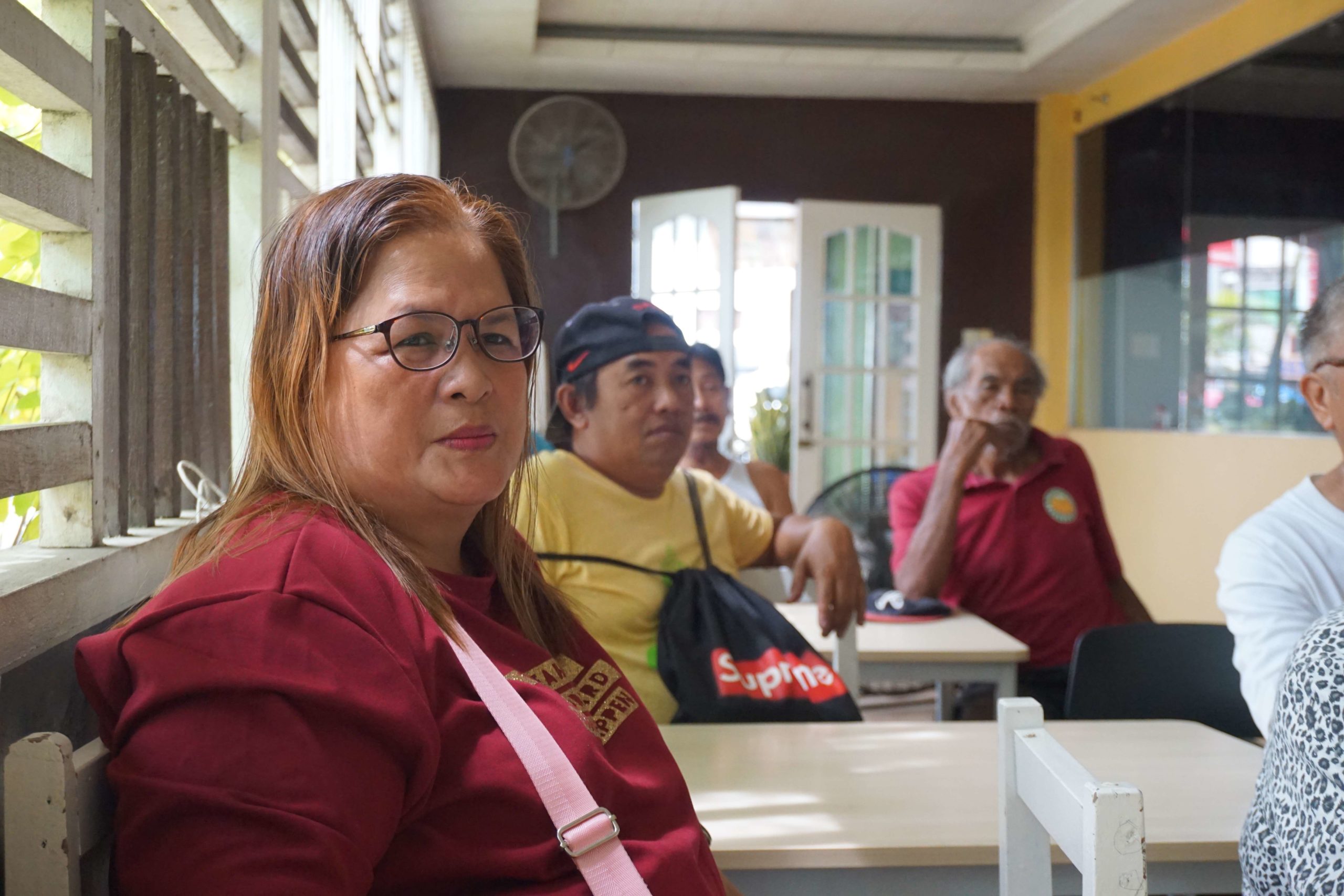ECONOMIC RIGHTS
GRAISEA Project — the 5-Year-Long Journey to Inclusion

After five years of championing human rights and equal opportunities in the Philippine agricultural sector, the GRAISEA 2 project caps off with paved roads to inclusion.
The Gender Transformative and Responsible Agribusiness Investments in Southeast Asia (GRAISEA) is a Southeast Asia-wide project led by Oxfam that works towards the establishment of a sustainable and more inclusive agricultural sector by promoting responsible business practices and inclusive value chains that give equal rights and opportunities to all. It seeks to lessen how corporations negatively affect the environment and society.
In the Philippines, GRAISEA 2 started in 2018 and is implemented by Oxfam Pilipinas, in partnership with Initiatives for Dialogue and Empowerment through Alternative Legal Services (IDEALS) Inc. and Institute for Social Entrepreneurship in Asia (ISEA). It champions the economic empowerment of women and resilience of Filipino farmers through community and policy interventions.
Why Inclusion in Agriculture Matters
Major partners of the project are agrarian reform beneficiary (ARB) cooperatives from banana plantations in Compostela, Davao de Oro in Mindanao, namely Davao Fruits Banana Growers Agrarian Reform Cooperative (DFBGARC), Selecta Farm Multipurpose Cooperative (SELECTA), Nueva Visayas Agrarian Reform Cooperative (NUVIARCO), and Survivor Farm.
These ARBs have been struggling to keep their farms viable, especially when effects of climate change reduce agriculture productivity. Moreover, gender-based violence, inequality in labor conditions and access to work opportunities, education and land ownerships also put female farmers at a significant disadvantage despite investing the same amount of time and effort in their work as male farmers. GRAISEA works to address these issues to help improve the standard of living of the smallholders.

IDEALS team meets up with ARBs, who are also GRAISEA partners, to inquire of how its capacity-building interventions are affecting the farming communities
Rolando Torintera, ARB leader and GRAISEA partner since 2015, shared that the farmers have always felt powerless to speak up about the problems that impact them. He shared that they receive little to no help from neither the public nor the private sector.
“We aren’t heard because there’s no bridge. But if projects like GRAISEA are implemented, we can hope that assistance will be provided to ARBs from local to national level,” Torintera said.
The cooperatives have been struggling to amend their agreements with a multinational agricultural corporation that exports crops from Mindanao. Majority of the farmers are binded in up to 15 to 30 years with the corporation, and some even with the option of an additional 15 to 30 years of renewal. Farmers are also forced to pay a significant share of the costs and hazards associated with agricultural production. However, despite the farmers’ grievances, the corporation refused all contract negotiations.
“It’s difficult to communicate with their lawyers, even on minor problems. If you need something from them or want to ask for assistance, you should write to them. Everything must be written. That’s the problem because the process takes a long time,” he continued.
Over the past few years, the farmers have been forced to endure even more extraordinarily challenging conditions. The Panama disease, a soil-inhabiting fungus that causes bananas, especially cavendish, to die, broke out in Compostela in 2019 and affected 70% of 200 ARBs who were GRAISEA partners. Soon after, the COVID-19 pandemic also caused production interruptions for agricultural livelihood with greatly reduced access to labor and important inputs.
The farmers received no assistance from the corporation they had agreements with and even from the government. Farmers revealed that the Philippine Crop Insurance Corporation (PCIC), a government agency tasked to provide protection to farmers against financial losses from natural calamities, plant diseases, and pest infestations of their crops, had held them accountable for the calamities’ repercussions.
Scaling Up Agricultural Policy Interventions
Given the complex challenges at the grassroots level, GRAISEA worked towards providing capacity-building interventions for farmers to have greater authority over their own future, and involving the private sector as part of the solution.
The farmers received technical, social and legal education, along with help on contract negotiations. To improve the development and supervision of agribusiness venture arrangements of the ARBs, IDEALS also facilitated connections with representatives of the Department of Agrarian Reform (DAR).
“We didn’t know about these before. But now, we have a lot of ideas because there have been many activities involved in talking to the DAR about our status as ARBs,” Torintera stated.
To make the farmers’ business sustainable, the project pursued integrating human rights and providing opportunities for the economic empowerment of marginalized communities through inclusive businesses.

IDEALS facilitating a workshop on government agricultural interventions and policy development for ARBs in Compostela, Davao de Oro
IDEALS worked with key government agencies to create a bill that empowers inclusive businesses that integrate low-income families into its business operations, and as part of the value chain.
With a partnership with the Board of Investments (BOI), who was in charge of the government’s advocacy for inclusive business (IB), the project helped develop a national roadmap to inclusive businesses, convene national consultations with key stakeholders from the government, private sector (PS), civil society, and communities, and most importantly, drafted the Inclusive Business Bill.
IDEALS also partnered with Business & Human Rights Resource Center (BHRRC) to help produce the campaign deck for the proposed IB Bill and support its lobbying initiatives. Ultimately, BHRRC provided additional small grants to support the completion and production of the campaign deck.
IDEALS was able to contact key players in advancing the bill and in increasing its support and constituency, especially within the Congress. In 2022, it was filed in the Senate by Senator Risa Hontiveros and in the House of Representatives by Congressman Arnie Fuentabella.
Furthermore, talks with the private sector spanned from 2020 to 2022 on improving the IB Bill. In an online IB roundtable discussion (RTD), stakeholders from the private sector and their partners, such as Management Association of the Philippines (MAP), Philippines Partnership for Sustainable Agriculture (PPSA) and the National Confederation of Cooperatives (NATCCO), reaffirmed their commitment to support the Inclusive Business (IB) Bill in 2022.
In a learning and consultation activity with farmers in Compostela, Davao de Oro, IDEALS shared the status of the IB Bill. The farmers also expressed their support for the bIll since they said it is an opportunity for the businesses to be more accountable and genuinely address the needs of farmers.
Currently, the IB Bill is pending in both houses of Congress as Senate Bill No. 584 and House Bill No. 6544. Once enacted, it would play an integral part in the poverty reduction and industry modernization agenda as it expands the economic opportunities for marginalized communities and aligns its provisions to recognize the value of climate resilience.
Torintera said that the assistance provided by IDEALS through GRAISEA made it a lot easier for the farmers to communicate with the government and corporations. Farmers also learned about the concerns they needed to address, like how they should be compensated better for their work, especially given how expensive exported bananas are in other countries.
Helping Farmers Close Gender Gap

Cecil Suan learning about Inclusive Business and its impact on the current situation of agrarian reform beneficiaries (ARBs) during a GRAISEA workshop
Cecile Suan, one of the ARB partners, recalled her relationship with IDEALS started through its gender seminars. It helped her as a single mother, especially with their banana farming.
“Before, I just stayed at home. But I realized that if men can do the work, so can women,” Suan said.
Women can play a predominant role in many aspects of crop production. To achieve sustainability in agriculture, all individuals involved must access opportunities that help them realize their full potential as producers and value chain players
IDEALS led gender awareness workshops, radio programs, and development seminars under the project to address issues that widen gender gaps in agricultural productivity and increase the participation of women in these cooperatives.
Through these activities, the rural farming communities learned about the importance of women’s economic empowerment. Farmers now respect the contribution of women in their communities, and ensure that women have leadership opportunities.
Torintera mentioned that through the seminars, farming cooperatives now recognize how women farmers can spark social and economic change.
“In our association, the officers used to be all men but there are now female officers as well,” he stated.
In 2020, consultations with the civil society organizations (CSO) bolstered the gender lens of the bill. In October that year, 11 gender-inclusive provisions were added to the draft.
The development of gender-inclusive provisions in the IB Bill ensures that women smallholders are an integral part of the IB program once the bill is passed. The key provisions highlighted the need for recognition & protection of the rights of women, particularly the right to access & control over resources. The gender-inclusive version of the IB Bill is filed at the House and Senate in the 19th Congress.
Elevating Farmers’ Voices
In April 2021, a weekly radio show was also developed as a short term project under GRAISEA to gather insights from the farmers and further improve the IB Bill draft. The Pakiglambigit: Tulay sa Kabihalo ug Pagkat-on sa mga Mag-uuma (Connecting: A bridge towards knowledge and awareness for farmers) was a weekly radio show that featured ARB partners and tackled topics like the rights and privileges of farmers, gender inequality in agriculture and the Inclusive Business bill.
Pakiglambigit extended legal assistance and discussed issues relevant to the ARBs, especially women farmers, in Davao de Oro. The program had its second season in 2022. In total, the show produced 39 episodes aired on FM radio stations in Tagum, Davao de Oro.
Moreover, in 2023, IB practitioners and advocates from different industries gathered in a learning event titled, “Growth for All: through Inclusive Business in the Philippines.”
This initiative improved relationships between various IB stakeholders, gathered feedback, and increased support for the IB Bill from the private sector. It helped address how they can act as development partners of marginalized communities to provide them economic empowerment.
It was facilitated by IDEALS Inc. and Oxfam Pilipinas, in partnership with PPSA. It featured speakers from inclusive organizations such as the Farmer Entrepreneurship Program of the Jollibee Group Foundation, PHINMA Education, CODESPA and the Integrated Bar of the Philippines.
Beyond GRAISEA
Under its economic rights program, IDEALS uses its network to engage multiple stakeholders for policy influencing and capacity building of local banana farmers in areas of Mindanao.
To guarantee a collective and sustainable partnership, IDEALS is co-facilitating efforts through other programs. Initiatives work towards providing equal opportunities for agricultural investments on business and human rights principles, climate resilience, and gender equality. IDEALS also urges its partner farmer organizations to consider the consequences of climate change, such as flooding, drought and changes in weather patterns.
Through community interventions like these, Filipino farmers can have a more active involvement and a louder, powerful voice when speaking with agricultural corporations and relevant government organizations. The empowerment of farmer beneficiaries would give them the courage and ability to engage the firms and bring an end to their mistreatment.
Though the project comes to an end, the call for more community and policy interventions remains the same. Building an inclusive community takes time, and GRAISEA hopes that the relationship and trust created during the project continues to spark change, not only for the agricultural sector, but for other vulnerable communities as well.
